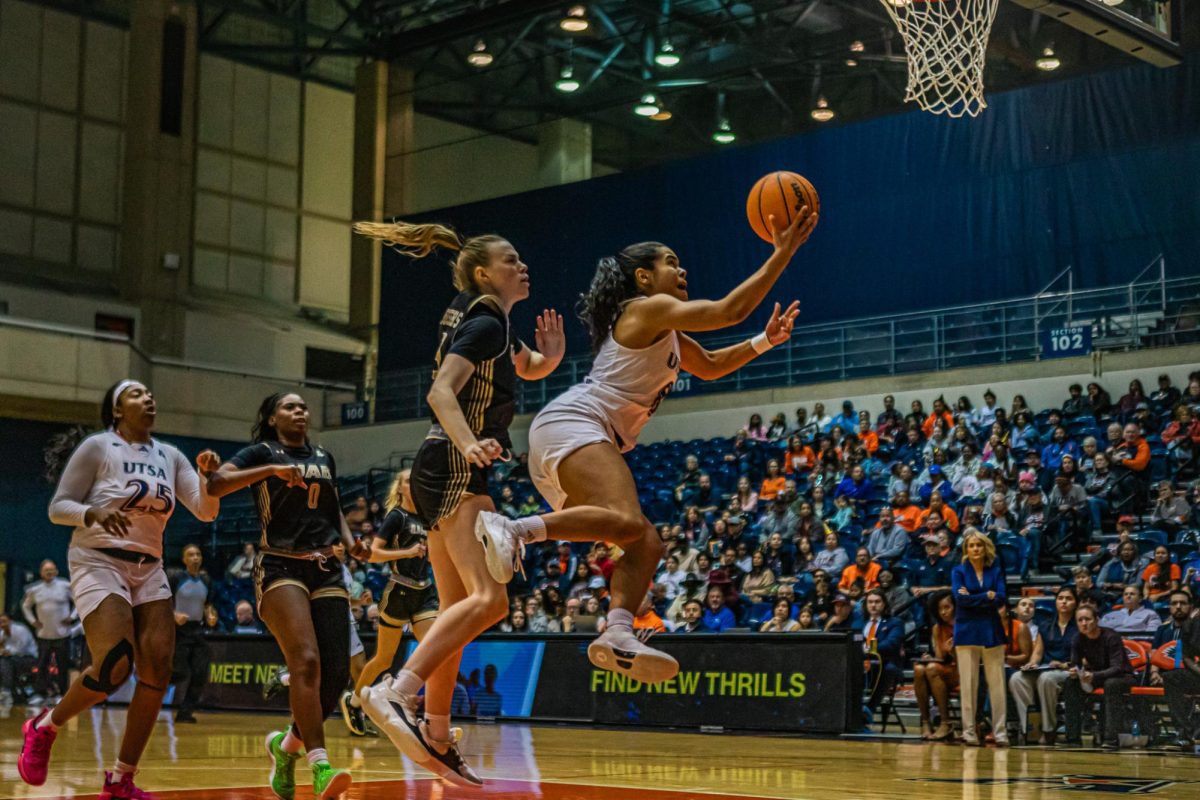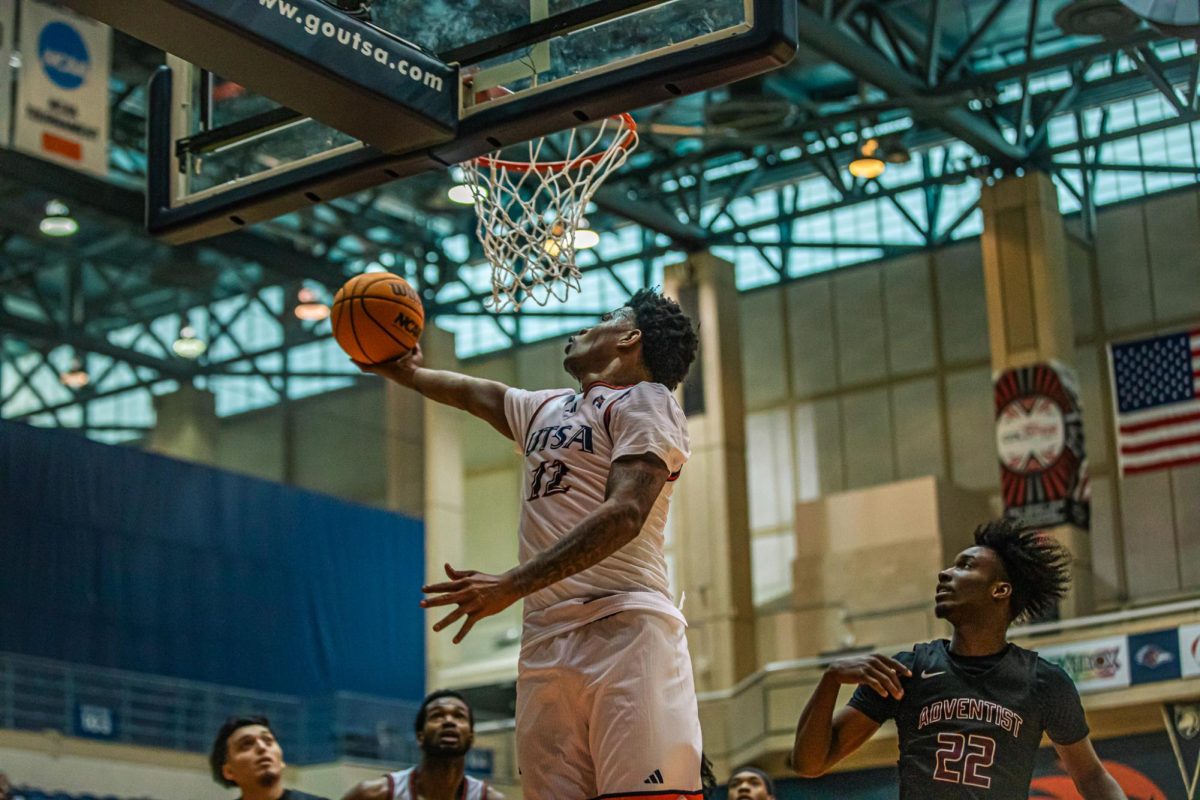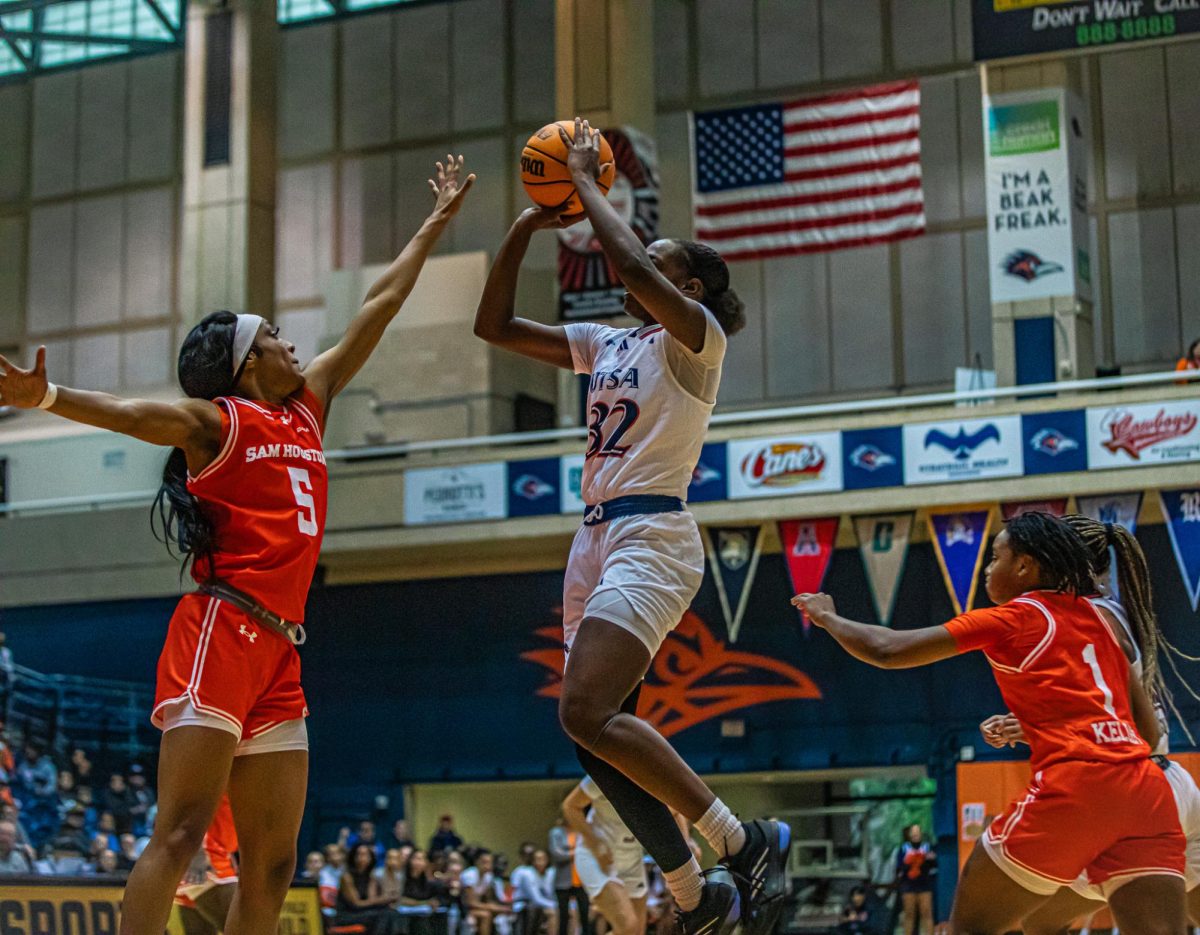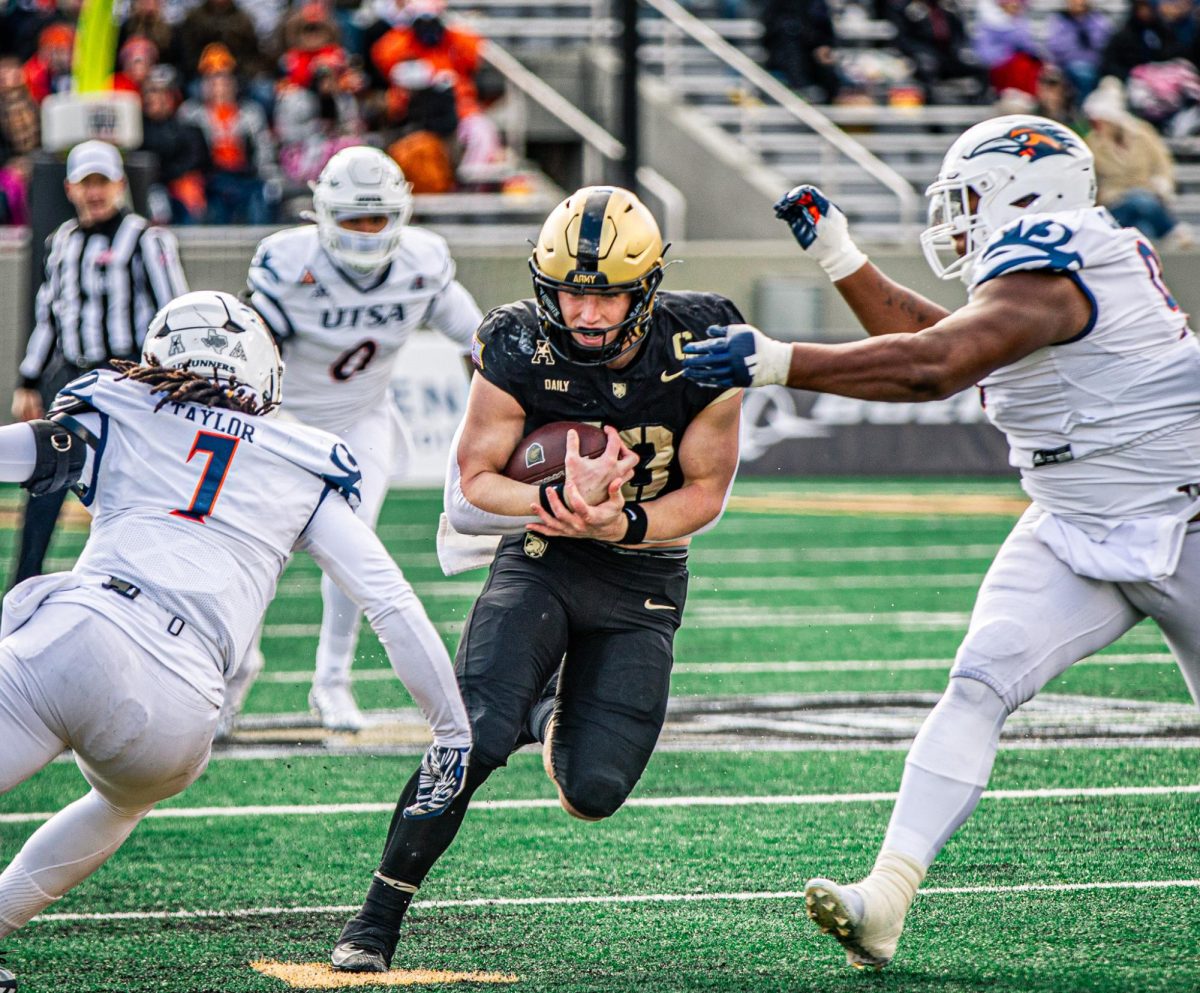

Shabazz I. Dawkins, The Paisano
There have been moments this season where UTSA has looked like a real contender. An efficient running game has opened up big pass plays that have made for an extremely promising offensive attack. Several of these moments, however, have been nullified by what Head Coach Larry Coker calls “foolish” penalties.
The Roadrunners opened up against the Kansas State Wildcats with a 41-yard march into opposing territory before acquiring back-to-back false starts that pushed the offense back to midfield. Two plays later, quarterback Blake Bogenschutz made a 12-yard run to the first down marker to keep the drive alive, only for it to be brought back by a holding call. UTSA was forced to settle for a field goal.
The following offensive series began with a Jarveon Williams 13-yard run that was also nullified by a holding penalty — the drive ended up in a 3-and-out on what would have been a first down.
The trend continued as holding calls voided first downs and false starts added extra yards to UTSA drives, including one on 2nd-and-goal from the 6-yard line that pushed UTSA back to the 11, on a drive that could have given the Roadunners a 10-7 lead going into halftime.
Instead, UTSA failed to put points on the board after a batted pass on 4th-and-goal. That was the closest they would get to scoring a touchdown in their own home stadium Saturday.
The defensive side of the ball hasn’t been much better off. The 3rd quarter of the Kansas State game saw back-to-back defensive penalties that gave the Wildcats a field goal and a personal foul that allowed them to score their second touchdown of the afternoon.
Recalling the Arizona game, an illegal block-in-the-back negated UTSA freshman kick returner Brett Winnegan’s 102-yard kickoff return for a touchdown that would have evened the score 7-7 in the first quarter.
UTSA has amassed 22 penalties in their first two games. Only three schools in all the Football Bowl Subdivision have compiled more. That number doesn’t describe the detriment the mistakes have had on the squad. These errors have happened in critical momentum-building moments that can alter the course of a game, but the penalties have only shifted that same momentum back in favor of the opponents.
“Those are things that are unacceptable”, Coker responded when asked about the penalty issue.
Any spectator of the first two games knows that these power-conference opponents have certainly not outmatched the Roadrunners, even though the odds-makers said otherwise. Instead, UTSA has taken the proverbial shotgun and unloaded it into their own two feet, further delaying the program’s next big step — beating a team from a Power Five conference.
The UTSA coaches believe the time has come to stop giving the team a pass and the benefit of the doubt because they are “young.” The players believe they have more than enough talent to give Big 12 and Pac-12 opponents the business. UTSA has not been overmatched nor outplayed, but they have failed to capitalize on momentum and they negate their own progress with petty mistakes.
The Roadrunners have done more damage to themselves than their opponents have, and there’s just no excuse for the lack of discipline. Three of Saturday’s 12 penalties came from tight end David Morgan II, a senior offensive force that has to set a better disciplinary example for the rest of the unit if they want to win. “Simple communication stuff… it’s an easy fix,” Morgan commented at Monday morning’s press conference.
The Roadrunners have got to improve on executing their silent snap counts. If the Alamodome was loud, then Stillwater will be deafening when the Roadunners march into Oklahoma State to take on the Cowboys this Saturday. To help prepare for the noise, UTSA will be implementing “CHAOS” into this week’s practices: placing a giant loudspeaker behind the line of scrimmage that deafens all sound, leaving the team to rely on hand signals and body gestures for the snap.
After Monday’s practice, starting running back Jarveon Williams was asked what the team needs to improve on most: “We can’t keep shooting ourselves in the foot, that’s been our downfall for the past two weeks. We can’t keep putting ourselves behind the chains, it limits our playbook.”






